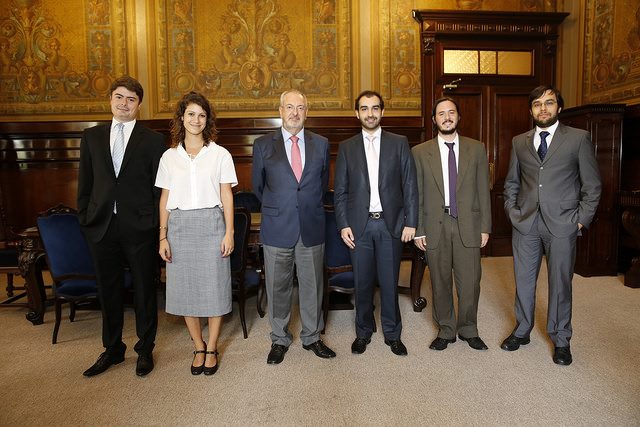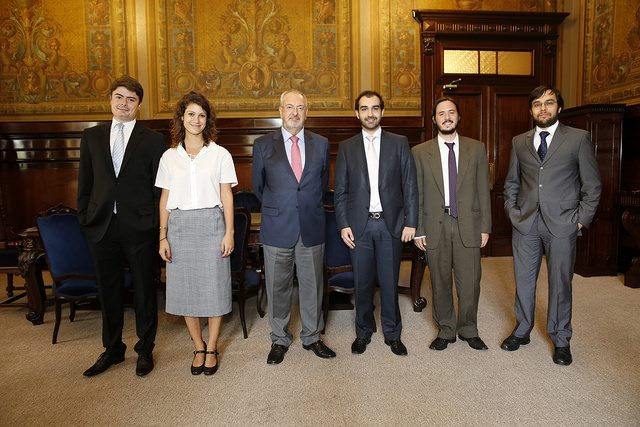
New Project: Judiciary and Access to Information
Technical Cooperation Agreement: São Paulo’s Court of Appeals and InternetLab
On January 29th 2015, InternetLab signed a Technical Cooperation Agreement (TCA) with São Paulo’s Court of Appeals (TJSP). The agreement, which is similar to a covenant, provides that the two entities adopt a series of measures of common interest.
An InternetLab research team will bring forth a diagnosis of TJSP’s transparency policies, analyzing to what extent the provisions of the Access to Information Act are being fulfilled and the best public data disclosure practices. Our main focus is to learn which information TJSP is voluntarily disclosing in its internet communication channels and how the Court has been dealing with information requests offered by citizens.

How does the Access to Information Act (Law 12,527 / 2011) operate?
The Law, as indicated by its popularized name, makes it clear that citizen’s right to obtain access to public information is a rule with very few exceptions. That is, there are few cases in which information can be legally kept secret.
The law divides the concept of transparency into two categories: active transparency (Article 8) and passive transparency (Article 10).
Active transparency regards the information that the public agency must voluntarily disclose in its communication channels. In other words, information does not need to be asked by anyone. The public agency must also ease access to such content, giving preference to disclosure methods that enable citizens to easily find and employ such information.
Passive transparency, on the other hand, is auxiliary to active transparency and regards responses to information requests offered by any citizen, regardless of their age, organization or interest which motivated his request for access to information.
InternetLab strongly believes in the importance of supervising the enforcement of the Access to Information Act. We consider that keeping a close eye on transparency policies is not only important because of the “right to knowledge”, but also because it integrates the freedom of expression. This is because well-informed citizens are more capable of manifesting themselves and, thus, of monitoring the government.
And how has the Judiciary reacted?
The Judiciary is no longer a “black box”, as it was known ten years ago. There are commendable practices from the point of view of citizenship that have been undertaken, being especially remarkable the disclosure of the countries’ judges’ and justice’s servant’s wages. The National Council of Justice’s (CNJ) initiative was decisive for this achievement.
However, there are still serious problems to be solved. Besides the difficulty of changing a secrecy culture, which is only achievable in time, there is a more worrisome fact: the Access to Information Act, enacted over three years ago, has not yet been regulated by the Judiciary. That is, there are no standards that enable citizens to know the path to be followed for requiring the requested public information.
Transparency and Internet: a perfect combination
It was not internet that granted citizens the right to access information produced or held by the government. But there is no denying that it is responsible for easing and accelerating the disclosure of this information.
Besides being a few clicks away from valuable public information, citizens can also resort to technology to create tools that ease our day-to-day and increase government scrutiny.
This kind of practice can change people’s understanding of their role as citizens and on the value of public information. Applications created by Brazilians, such as the “Reputation S.A.”, “Follow your city councilor” and “Parliamentary Radar”, reveal that the population is increasingly aware of its power and ability of generating change through knowledge.
Our Goal
We believe that, by the end of our research, we will be able to offer suggestions and recommendations aimed at improving São Paulo’s Court of Appeals transparency and, why not, that of the Brazilian Judiciary. The diagnosis achieved will not only consider legal obligations, but also best practices that ease access and use of public information.
We therefore desire to approach citizen to the content to which it is entitled in the best possible way, helping to pave the way for the effective employment of public information.
Authors: Jonas Coelho Marchezan and Ivan Franco